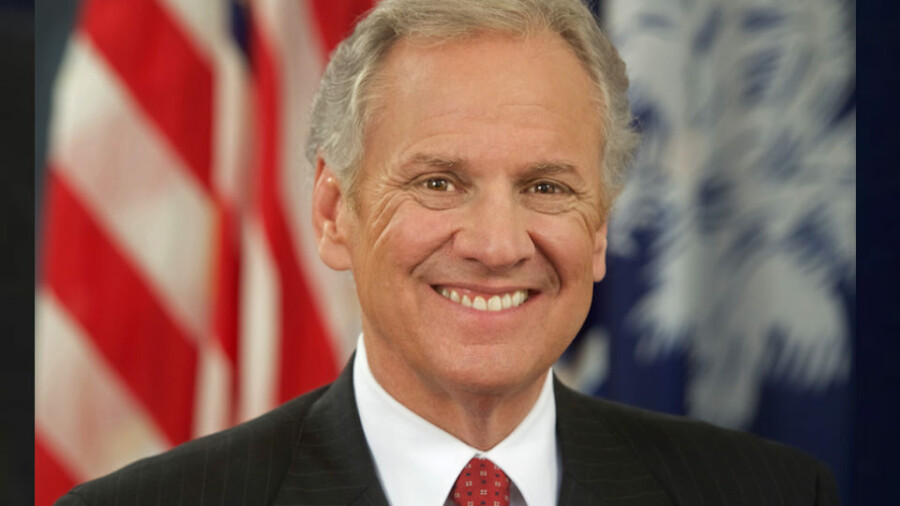
COLUMBIA, S.C. — South Carolina’s Republican Governor Henry McMaster held a ceremony on Wednesday combining the signings of the state’s new age verification law for adult content and a controversial ban on gender affirming care for trans youth.
During the photo-op showing him signing the bills into law, McMaster made a statement that conflated the laws as both aiming to “protect the innocence of our state’s children” against “threats” and “damaging influences online and off.”
H. 3424, South Carolina’s version of the age verification bills being sponsored around the country by anti-porn activists, is also known as the “Child Online Safety Act” and was originally introduced in Dec. 2022. It passed the legislature on May 15 and was actually signed by McMaster on May 21. Age verification becomes effective on Jan. 1, 2025.
Wednesday’s ceremonial signing was deliberately scheduled by McMaster’s office to make a joint statement about the age verification law and H. 4624, the “Help Not Harm Bill” that denies gender affirming care to South Carolina’s trans minors. The joint ceremony dubbed both controversial laws “child safety legislation.”
“These signings reflect our commitment to ensuring the health and well-being of all our state’s children from damaging influences online and off,” McMaster said about the theater-like event, which unlike his May 21 signature, is not necessary for the law to go into effect. McMast added that he was “grateful for the support of the General Assembly and all those who have worked to bring these critical pieces of legislation to my desk.”
The Help Not Harm Bill, the governor’s office explained, “prohibits healthcare professionals from knowingly providing gender transition procedures to a person under 18 years of age. Gender transition procedures are defined as puberty-blocking drugs, cross-sex hormones, or genital or nongenital gender reassignment surgery, used for the purpose of assisting an individual with a physical gender transition.”
The bill “also prohibits public funds from being used directly or indirectly for gender transition procedures” of trans people regardless of age and “precludes the South Carolina Medicaid Program from reimbursing or providing coverage for these procedures.”
The Child Online Safety Act, the governor’s office claims, “protects minors from harmful online content by mandating websites containing 33.33% or more material deemed harmful to minors implement an age verification system to ensure that users under 18 years old cannot access the material. Harmful online content is defined as material or performances that depict sexually explicit nudity or sexual activity that an average adult applying contemporary community standards would find that the material or performance has a tendency to appeal to a prurient interest of minors in sex.”
H. 3424 also “makes websites that produce obscene material or promote child pornography or child sexual exploitation liable to an individual for damages, court costs, and reasonable attorney fees as ordered by the court and is open to class action suits,” the governor office added.
Free Speech Coalition (FSC) Executive Director Alison Boden told XBIZ, “It’s unfortunate that South Carolina chose to join its neighbors in passing an ineffective website-based age verification mandate despite knowing that it’s unconstitutional.”
